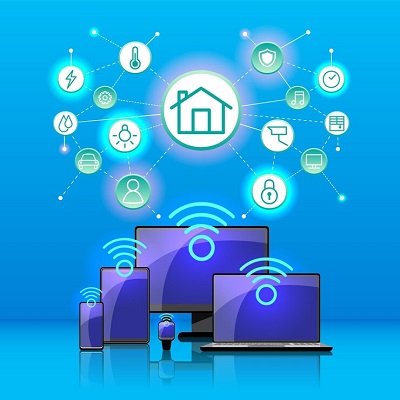In the rapidly evolving landscape of technology, the Internet of Things (IoT) has emerged as a game-changer, revolutionizing how devices interact and exchange data to create smart solutions. At the heart of IoT smart solutions lies the crucial role of wireless services, enabling seamless connectivity and data exchange across a myriad of devices and applications.
Wireless services play a pivotal role in IoT smart solutions by providing the essential connectivity that allows devices to communicate and collaborate. Whether it’s industrial automation, smart homes, healthcare systems, or smart cities, wireless services form the backbone of IoT ecosystems, facilitating the exchange of data and enabling real-time decision-making.
One of the key advantages of wireless services in IoT smart solutions is the flexibility and scalability they offer. With wireless connectivity, devices can be deployed and integrated into IoT networks without the constraints of physical cabling, allowing for greater agility and adaptability in diverse environments. This flexibility is particularly valuable in dynamic settings where devices need to be mobile or easily reconfigured to meet changing requirements.
Furthermore, wireless services empower IoT smart solutions with the ability to gather and transmit data from remote or hard-to-reach locations. This capability is instrumental in industries such as agriculture, environmental monitoring, and asset tracking, where sensors and devices need to operate in challenging or remote environments. By leveraging wireless connectivity, IoT solutions can collect and transmit valuable data, enabling informed decision-making and improving operational efficiency.
In addition to connectivity, wireless services contribute to the security and reliability of IoT smart solutions. Advanced encryption protocols and authentication mechanisms ensure that data transmitted over wireless networks remains secure, safeguarding sensitive information and maintaining the integrity of IoT ecosystems. Moreover, wireless technologies such as LTE-M and NB-IoT are designed to deliver reliable connectivity, even in areas with limited coverage, ensuring consistent and uninterrupted data exchange.
The evolution of wireless technologies, including the emergence of 5G, holds tremendous potential for IoT smart solutions. The enhanced speed, capacity, and low latency offered by 5G networks will unlock new possibilities for real-time applications, high-definition video streaming, and ultra-reliable connectivity, further propelling the capabilities of IoT ecosystems.
As IoT continues to proliferate across industries, the role of wireless services in enabling seamless connectivity, data exchange, and scalability will remain indispensable. By harnessing the power of wireless technologies, IoT smart solutions are poised to drive innovation, efficiency, and transformative experiences in the digital era.
In conclusion, wireless services form the cornerstone of IoT smart solutions, empowering devices to connect, communicate, and exchange data across diverse applications and environments. As the IoT landscape continues to evolve, the role of wireless services will continue to be instrumental in shaping the future of smart and interconnected systems.
In this blog post, we have explored the essential role of wireless services in IoT smart solutions, highlighting their impact on connectivity, scalability, security, and the potential unleashed by emerging wireless technologies. As the IoT ecosystem continues to expand, understanding the critical role of wireless services is key to unlocking the full potential of smart and interconnected systems.
